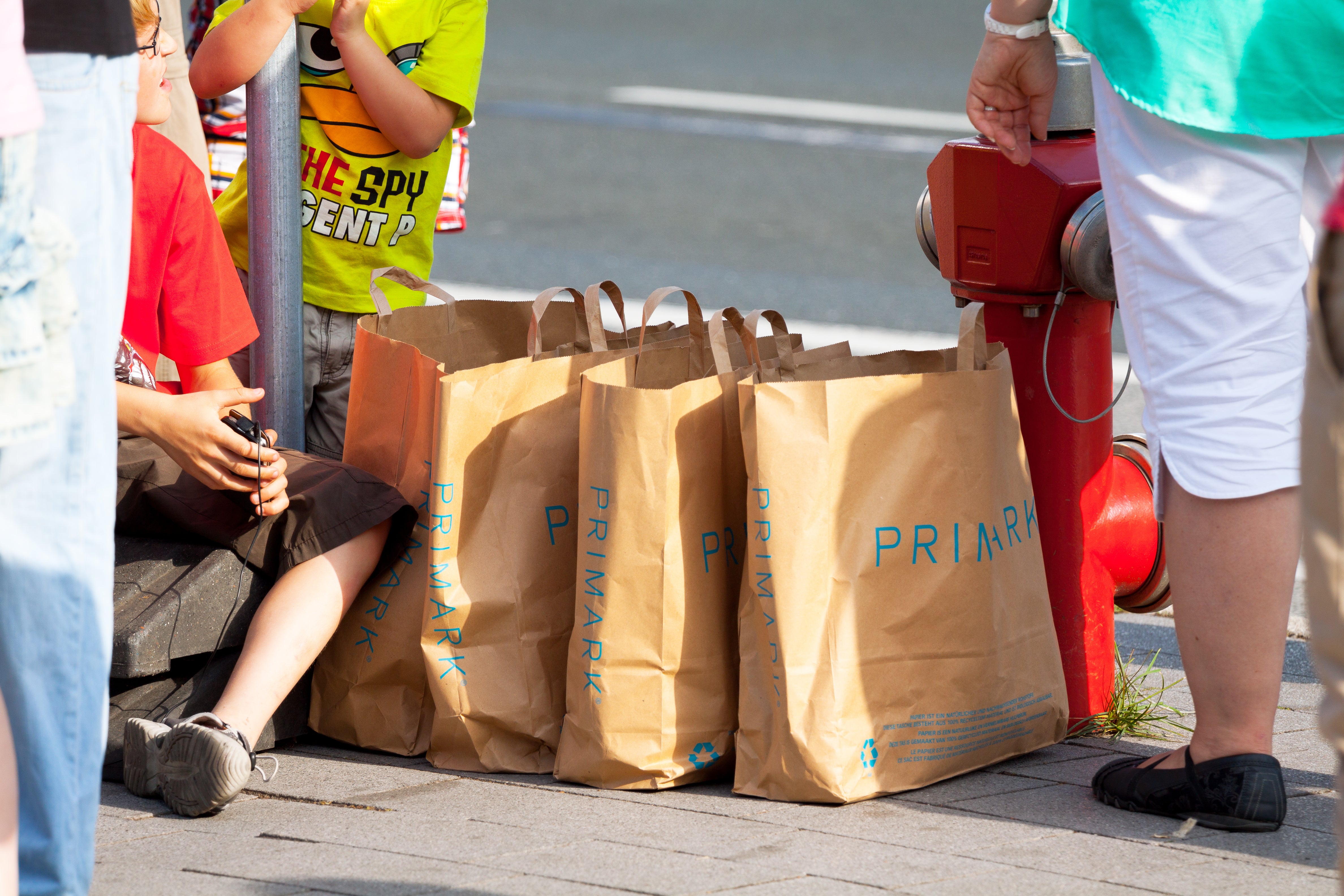High street brands are pulling the wool over our eyes – by greenwashing
Some of the high street’s biggest brands use factories that are polluting rivers and exploiting already poorly paid garment workers


Your support helps us to tell the story
From reproductive rights to climate change to Big Tech, The Independent is on the ground when the story is developing. Whether it's investigating the financials of Elon Musk's pro-Trump PAC or producing our latest documentary, 'The A Word', which shines a light on the American women fighting for reproductive rights, we know how important it is to parse out the facts from the messaging.
At such a critical moment in US history, we need reporters on the ground. Your donation allows us to keep sending journalists to speak to both sides of the story.
The Independent is trusted by Americans across the entire political spectrum. And unlike many other quality news outlets, we choose not to lock Americans out of our reporting and analysis with paywalls. We believe quality journalism should be available to everyone, paid for by those who can afford it.
Your support makes all the difference.Hold the front page. Amazon and Primark rank among the "most sustainable retailers" in a recent poll by Retail Week for a new report called: "Green Is The New Black".
“The majority of consumers surveyed were found to be more likely to buy from a retailer or retail brand with strong ethical and sustainable credentials (55 per cent),” it found. Clearly, people value sustainability. But are they getting hoodwinked?
Last week, The Independent also revealed that the number of ads banned due to greenwashing has tripled in just one year. The wool is being pulled over consumers’ eyes, as big brands are jumping on the sustainability bandwagon, and giving it a major oomph.
I think both these findings are truly troubling.
Amazon is constantly in the news with reports on workers’ poor pay, rights and working conditions. Most recently, around 60 workers staged walkouts in the US over pay and break times, asking for a $3 raise and a return of 20 minute breaks. In 2019, workers claimed they had to urinate in plastic bottles and were not allowed to go to the toilet, while during the pandemic Amazon broke the law by firing two employees who spoke out about the need for better Covid safety measures.
Amazon also has an inordinate amount of money it could use to pay its 1.3 million worldwide workers well above a living wage, offset its carbon emissions, and be a trailblazer for innovating reusable packaging. It is a signatory of the Climate Pledge, which commits to reaching net-zero emissions by 2040, but that’s decades away, especially considering its footprint grew 19 per cent during 2020.
Yes brands such as H&M and Primark have "conscious ranges," but it’s not the full offering. The range is likely to equate to a tiny percentage of the retailer’s full clothing and accessories line. Arguably these are only token gestures to draw people in through greenwashing, for fear of not being seen as sustainable.
The sheer volume of clothing and other items that some brands sell is also terrifying. Some ultra-fast fashion retailers such as Misguided are reported to launch up to 900 new products a week. There’s nothing sustainable about churning products out at that rate.
Even worse, China has been accused of human rights violations over cotton production, as reports suggest an estimated half-a-million people from ethnic minority groups have been coerced into picking cotton.
Some of the high street’s biggest brands use factories that are polluting rivers, exploiting already poorly paid garment workers (who are mostly women) and using intensively farmed cotton from China that causes soil erosion.
What the companies say
I approached these companies for comment on sustainability. H&M declined to say what it plans to do in the future to be more ethical and sustainable.
A Primark spokesperson said: "For there to be real change, everyone needs to change." It went on to say that: "The commitments we have made at Primark to become a more sustainable business are complex and will take time, because of our size and scale."
Amazon has been asked for comment but has not replied yet.
Fast fashion retailer Boohoo, which faced a modern slavery investigation after claims it paid workers just £3.50 an hour, ranked highly on Retail Week’s list too. I asked them about what they’re doing to improve sustainability too.
A Boohoo group spokesperson said: “We have undertaken a programme called Agenda for Change where we implemented all 17 of the recommendations made by Alison Levitt QC in her Independent Review of the business. The programme has recently been signed off as complete by Sir Brian Leveson and KPMG, both of whom we appointed to provide oversight of the Agenda for Change programme.”
They added that they now operate whistleblowing hotlines, developed in partnership with Slave-Free Alliance, “to ensure any concerns about the behaviour of our suppliers can be reported and investigated.”
Certification matters
To really know if a brand is truly sustainable and ethical, look for the B Corp certification. This means the brand has attained the highest possible standards across its five key categories: workers, the environment, customers, community, and governance.
The certification has existed since 2006, and to date has had more than 150,000 brands apply for the assessment, but only a mere 4,500 had actually passed it, proving how hard the status is to gain. Amazon, Primark, Nike and H&M do not have this certification.
Paving the way is the household name Patagonia, which has for 40 years supported grassroot groups to help find solutions to the climate crisis, and has B Corp certification. Since 1985 it has also pledged 1 per cent of sales to the charity 1% For The Planet, (which has raised around $89m so far) that helps preserve and restore the environment. But Patagonia only ranked 20 in Retail Week’s list of 25 retailers.
MUD Jeans, another B Corp certified brand, has implemented a recycling denim system, which keeps denim in use, rather than sending it to landfill. According to the UN, it takes 7,500 liters of water to make just one pair of jeans and MUD’s scheme uses 90 per cent less water.
While People Tree started in 1991, which has extremely high ethical standards, and was the first fashion brand to be awarded the World Fair Trade Organizational product label. It’s also part of the Global Organic Textiles Standard, meaning it only uses organic cotton and ensures the whole supply chain, from growing to processing, meets the high environmental and social standards.
Smaller brands who are genuinely doing good are being drowned out and squashed. With little to no marketing budget, there’s no competition in terms of who can shout the loudest. These brands may not be perfect, but they’re genuinely working on positive change.
To keep up to speed with all the latest opinions and comment sign up to our free weekly Voices newsletter by clicking here
Doing the bare minimum
In my opinion there should also be an onus on publications such as Retail Week to better inform consumers. It could shine a light on the real issue of greenwashing, and push for more transparency on giant retailers make ethical and sustainability claims. It could also champion brands who really are the changemakers in the industry.
Instead, Retail Week’s report seems to be adding to the misinformed thinking on sustainability. For example, it says: "Many retailers and brands are making efforts to be greener and this is capturing customer attention."
Retail Week said in response: “We found some of the results surprising... Primark and Amazon’s inclusion in the top-five list is intriguing considering very public criticism aimed at these companies in the past. Our purpose is to serve the retail industry with our content, even if at times it makes for difficult reading. Indeed, part of the reason for the report was to illustrate the disparity between consumer knowledge on sustainability and what businesses are actually doing.”
Yet, the way the report is written does not convey this message, or give more of a balanced outlook on the “disparity between consumer knowledge on sustainability and what businesses are actually doing”.
Some large brands are doing the bare minimum to keep up with what’s fashionable – to be more sustainable. I am sure the giant retailers could be doing far more. But if profits are all that is deemed important, human lives, the environment, better practices, better materials and better wages are not seen as real priorities.
Join our commenting forum
Join thought-provoking conversations, follow other Independent readers and see their replies
Comments